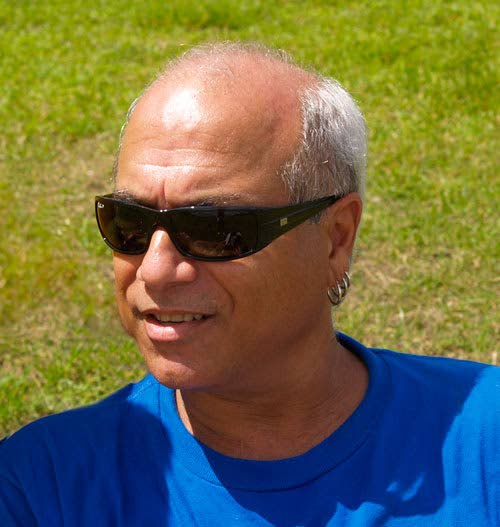Where Indian reach

THANK GOD IT’S FRIDAY
YESTERDAY WAS Indian Arrival Day but today’s burning question is where we’ve really reached, the hopeful, hapless Indians we all are – if only the West Indian in some of us.
But even the most doctrinaire members of the Afrocentric community – what a nice way to describe black racists – wouldn’t have to fudge their Indianness because, in Trinidad, we’ve all been at least partly Indian for centuries – and, the more Trinidadian you claim to be, the more Indian you necessarily are.
The aspects of Trinidad that were brought here by the people who crossed the kala-pani 174 years ago have weaved themselves deeply into the fabric of ourselves; look here, I was 27 years old before I found out – in England! – that the mysterious “chick peas” I’d been hearing about for decades was really channa. I only ever knew the Hindi word; because I’m from Trinidad.
When the holiday was first mooted, I remember – or at least I think I remember; my memory is less amazing and more a maze – there was some back-and-forth over whether it should have been called simply, “Arrival Day;” I want to believe the prime minister who introduced it (Patrick Manning) intended it to be called Indian Arrival Day on the first official holiday in 1991 and, thereafter, the “Indian” would be dropped. In 1996, though, the country’s first Indian prime minister, Basdeo Panday, put the Indian back in for good, if not for better.
Columnists in and letter writers to the papers in both 91 and 96 (if my memory serves, and it’s far more likely to double-fault) observed that Emancipation Day was not called “African Emancipation Day” and pointed out that leaving the “Indian” out of the holiday name would be more inclusive: Arrival Day could be celebrated by the Portuguese, Chinese, Syrians and Lebanese etc; Panday’s reply, expressed in careful parliamentary language, was the diplomatic equivalent of, “Not a firetruck of that!”
In my head, at the time, I imagined the old Bas saying to himself, “If they want, black people could rename their holiday as African Emancipation Day but this one going to be either Indian Arrival Day or Is Indian Time Now, all-you make up all-you mind.”
And so we have Indian Arrival Day.
Of course, the more inclusive Arrival Day argument was right but, for Panday, it probably seemed he would not have reached if Indians didn’t arrive.
And, in Trinidad, you only know you’ve arrived when you get your own public holiday: witness the Shouter Baptists getting a national day off while the Rastas still wander in the figurative desert. You think, if and when their time comes, the Rastas will agree to Jehovah Rastafari Day?
Lloyd Best observed that, “In Trinidad, everybody gets to feel second-class.” Indian Arrival Day would have been, for Indians, nothing, if it were merely Arrival Day; and this is precisely what proves Trinidadian Indians to be really Indian Trinidadians, and not the other way around: the demand, not that we all celebrate arrival, but that we all celebrate Indians.
It reminded me of VS Naipaul’s Nobel Literature Prize acceptance speech, in which he thanked India, the land of his ancestry, and England, the land in which he lived, and he deliberately, painstakingly omitted Trinidad, the land of his birth; in doing that, he proved he was more Trinidadian than Indian or English: there could not be a more Trinidadian act than that of self-abnegation, especially on a global scale.
Trinidadians ignore the fabric of the argument and rip apart the hem.
You don’t need to designate an Arrival Day as Indian because we all already know – and celebrate – who got here.
But it is here that we are, and it is our way of celebrating that should guide us. Panday, remember, wept when he visited his ancestral village on the sub-continent – and all of Trinidad knew at once that his tears sprang, not from misery over what he had lost, but from relief at what he had escaped.
There are, undeniably, deep racial divisions in our society.
But there are even deeper connections between us all.
Again, as Lloyd said, Trinidadians are theoretical racists and practical integrationists: we serve curry at an African wedding.
When we realise our real strength – our openness, not our closed mindedness – we really will reach.
And, who knows, Indian Arrival Day may become Venezolano Escape Day.
BC Pires is wearing a dhoti…no, wait, it’s a dirty look


Comments
"Where Indian reach"